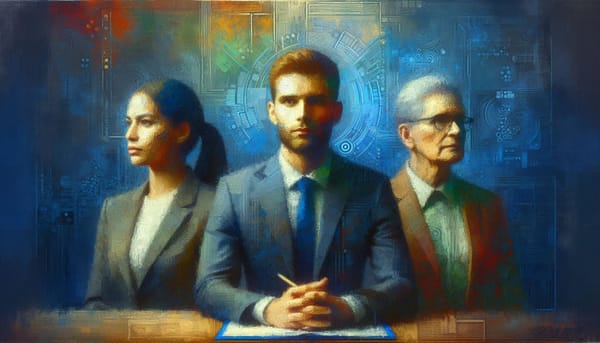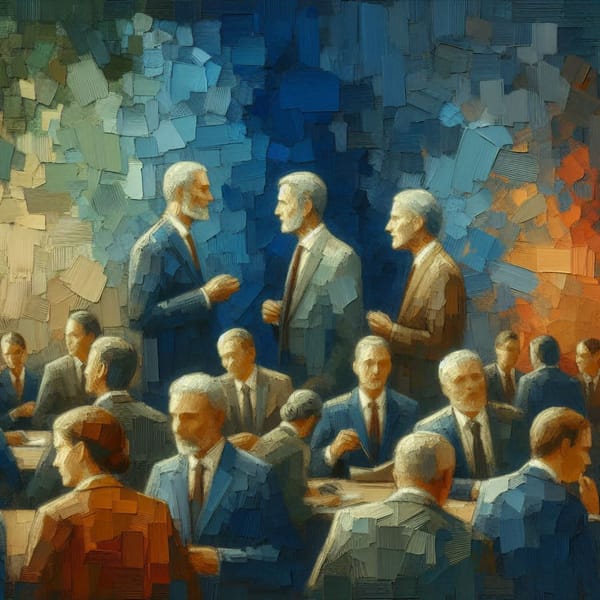AI vs. Human Coaching: What Career-Stage Leaders Should Know
As AI becomes more embedded in job search strategy, many professionals are asking: Should I rely on AI tools like ChatGPT for career support, or work with a human coach? The answer isn’t either/or.

Two Tools, One Goal—Clarity and Progress
As AI becomes more embedded in job search strategy, many professionals are asking: Should I rely on AI tools like ChatGPT for career support, or work with a human coach? The answer isn’t either/or. It’s about understanding the strengths and limits of each and knowing when to blend them.
In this post, we compare AI-powered assistance with human coaching so you can make aligned, informed decisions about how to use both effectively.
AI as a Career Assistant: Fast, Accessible, and Impersonal
AI can be a powerful job search and career management ally.
Strengths:
- Speed: Get immediate answers, resume drafts, or interview practice prompts.
- Cost-effectiveness: Free or low-cost for many use cases.
- 24/7 access: No need to book time or wait for feedback.
- Breadth: Can summarize trends, rewrite content, and simulate interview questions.
Limitations:
- Lack of personalized insight: Unless you train an AI specifically on your background it may be able to provide you with deep insight into your personality, history, or values.
- Lack of accountability: An AI waits for you to continue the conversation or let it know how your homework went. At present most such systems cannot hold you accountable for your actions.
- May give inaccurate or overly generic advice: If you need fairly simple guidance, an AI may well be able to help you. But when you need more personalized advice or feedback, you may find AI to be too general to be truly helpful.
- Struggles with nuance and context unless well-prompted: Context is critical with AIs so it's imperative that you provide it when you ask a question or seek advice.
Human Coaching: Strategic, Empathic, and Tailored
A human coach offers his or her own set of pros and cons for your consideration.
Strengths:
- Personal insight: Coaches reflect your blind spots and strengths so you can improve the former and leverage the latter.
- Customized guidance: A coach's advice is aligned with your unique career arc and goals. He or she is exclusively focused on your career needs so the output is more likely to be highly personalized.
- Accountability and encouragement: A human coach offers emotional resonance and pairs that warmth with momentum that yields results.
- Pattern recognition: Coaches notice what you’re repeating, avoiding, or overlooking. They also tend to excel at noticing the career patterns that best capture your strengths and explain your career pitfalls.
Limitations:
- Higher cost: You can employ an AI for free or very low cost while a career coach will potentially cost $150 or more per hour depending on the level of roles you are pursuing.
- Requires scheduling and time investment: No matter how flexible a human career coach is, they only have so many hours available in a day or a week and must schedule your call. Even if they get you scheduled right away, it may not be fast enough for your needs.
- Coach quality varies widely: Just as all AIs aren't created equal, the same is true of human coaches. It's enormously helpful to ask friends, family members, and peers for recommendations to help you find one that fits you like a glove.
When to Use AI Over Coaching
There are definitely times when leveraging AI makes more sense than coaching unless you have an unlimited budget:
- When you need to draft or edit documents fast.
- When you want to practice STAR interview answers or mock questions.
- When you're ready to create your own prompt templates or LinkedIn headlines.
- When you need to test AI output tone or formatting across versions.
When to Prioritize Coaching Over AI
And of course the flip side is true, too, so work with a human coach when you are:
- Clarifying big-picture career direction.
- Navigating identity, burnout, or purpose shifts.
- Deciding between job offers or pivots.
- Working through self-doubt or decision paralysis.
- Planning a move to executive leadership or board roles.
How to Use Both—Powerfully
But the best-of-both-worlds approach suggests thinking of AI as your task partner and your coach as your strategy partner. For example:
- Use AI to draft a resume section → Bring it to coaching for refinement.
- Use coaching to set your positioning → Use AI to test messaging across platforms.
- Use AI for daily habits → Use coaching to uplevel your mindset and big moves.
Final Thoughts: Tools Are Only as Good as Their Use
AI can save time. Coaching can change your life. Both have a place in a modern, human-centered job search strategy.
By all means use AI to accelerate your momentum. But don’t forget the power of empathy, challenge, and reflection that only a human can offer.





